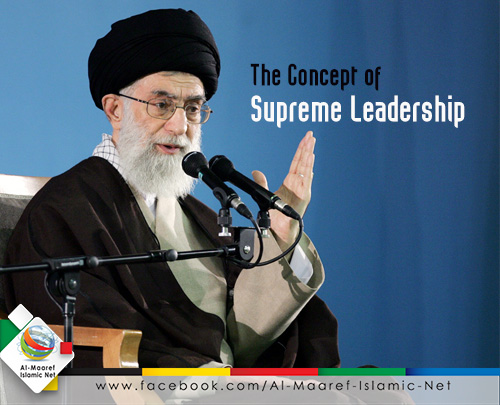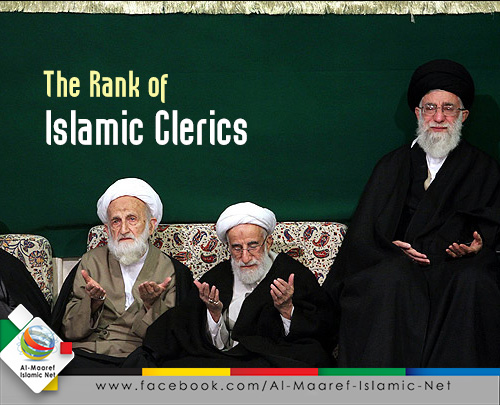The Development of the Theory of Ijtihad
Guardian for the Jurist
Shi'i ijtihad at the outset of the Minor Occultation did not come across the kind of difficulty faced during later eras with regard to the deduction of ahkam regarding new issues and problems. This was because, firstly, the Muslims of that time did not face the problems which emerged later. Secondly, due to the proximity with the era of nass, the availability of the Four Hundred Usul (which contained the records of the statements of al‑'Imam al‑Baqir (A.S.), al‑'Imam al‑Sadiq (A.S.) and the other Imams made, made by their pupils), and the understanding of the actual context in which those statements were made, the need for ijtihad was not felt as acutely as during the later times. Ijtihad and legal deduction was a simpler affair, free of the later technical complexities, because the legists of that period did not face any great difficulty with regard to the identification of trustworthy traditions, the literal and legal meanings and significance of words used in traditions, and the specific features relating to them. However, the passage of time and the emergence of new issues with the advancement of civilization, on the one hand, and the obliteration of signs and indications which were instrumental in understanding the import and purpose of traditions as well as the complications arising from changes in general and legal usage of words, on the other ‑ all these together made the task of deduction more difficult for the later mujtahids and jurists. To these must be added the difficulty arising from the forgeries and fabrications made by interested persons, which had affected the trustworthiness of many traditions.
Due to these causes, the practice of ijtihad for the deduction and discovery of the real ahkam was not so simple a matter as before, and it was necessary to study various sciences for the purposes of:
1- Determining the meanings of words.
2- Understanding of the literal meanings of the Book and the Sunnah.
3- Determining the reliability of narrators by studying their biographies for evaluating the asnad of traditions such as sahih, da'if, muwaththaq, mursal etc..
4- Determining the traditional and rational criteria for giving precedence to a tradition and the rules for reconciling conflicting traditions (on the basis of amm and khass, mutlaq and muqayyad, mujmal and mubin, zahir and azhar, zahir and nass).
The causes behind the conflict between traditions of legal significance were the following:
1- The loss of certain indications accompanying the texts of hadith, caused at times due to the dismemberment (taqti)of traditions and asnad, and at times due to the negligence of narrators.
2- The narration of traditions in reworded form by the narrator, in words different from that of the Imam.
3- The making of statements contrary to the real Shii position on account of taqiyyah, which the Shia were forced to practice as a safety measure to protect the Shari'ah and their lives, property and honor.
4- The graded approach of the Imams in the exposition and communication of the ahkam to the people, for the sake of the consideration of specific conditions of a certain inquirer or certain special circumstances.
5-Accordingly, anyone who engages in the deduction of Divine ahkam from the traditions should have the capacity to reconcile various kinds of contradictions arising from the above‑mentioned causes.
Notes:
1- This interpretation of the tradition is correct if ikhtilaf' is taken to mean difference of opinion'. However, in some traditions a different meaning is given to the word.
One of these traditions is the following from al‑Shaykh al‑Saduq's Ma'ani al‑'akhbar, Qumm, 1361 H.Sh., p.157:
... Abd al ‑Mu'min al‑'Ansari says: "I said to Abu 'Abd Allah: The people narrate the Prophet (peace be upon him and his household) to have said: "The ikhtilaf of my ummah is mercy". (Is that true?)' He replied: What they say is true.' I said, If their difference is mercy, then their consensus should be a scourge?!' He said, it is not as you or they understand it. Indeed, what the Prophet (peace be upon him and his household) meant is the import of this utterance of God Almighty:"..
﴾But why should not a party of every section of them go forth, to become learned in the Din, and to warn their people when they return to them, that haply they may beware?﴿1. (In this verse) God has commanded them to go forth (yanfiru) towards the Messenger of Allah (peace be upon him and his household) and to frequent (yukhtalifu)him so that they may learn and then return to their people to teach them. Indeed he (peace be upon him and his household) meant their departure from their places, not their divergence in the Din of Allah, For, verily, the Din is one."
* Ijtihad Its Meaning Sources Beginnings and the Practice of Ray, "The Development of the Theory of Ijtihad ". By Muhammad Ibrahim Jannati.
1- 9:122


















